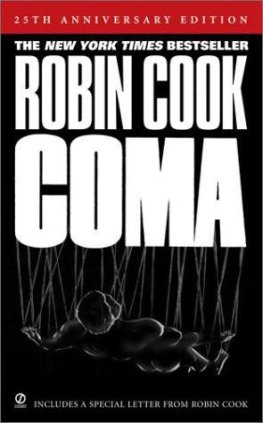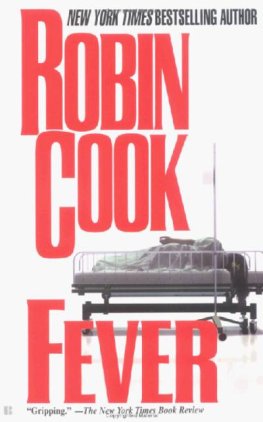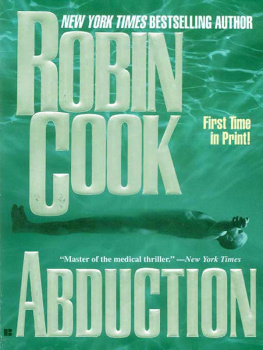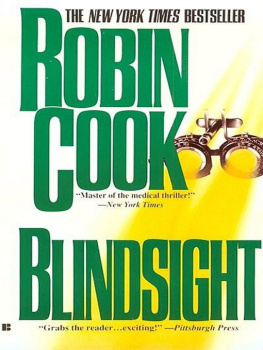Robin Cook - Coma
Here you can read online Robin Cook - Coma full text of the book (entire story) in english for free. Download pdf and epub, get meaning, cover and reviews about this ebook. City: New York, year: 2002, publisher: Signet Books, genre: Detective and thriller. Description of the work, (preface) as well as reviews are available. Best literature library LitArk.com created for fans of good reading and offers a wide selection of genres:
Romance novel
Science fiction
Adventure
Detective
Science
History
Home and family
Prose
Art
Politics
Computer
Non-fiction
Religion
Business
Children
Humor
Choose a favorite category and find really read worthwhile books. Enjoy immersion in the world of imagination, feel the emotions of the characters or learn something new for yourself, make an fascinating discovery.
- Book:Coma
- Author:
- Publisher:Signet Books
- Genre:
- Year:2002
- City:New York
- ISBN:9780451207395
- Rating:3 / 5
- Favourites:Add to favourites
- Your mark:
- 60
- 1
- 2
- 3
- 4
- 5
Coma: summary, description and annotation
We offer to read an annotation, description, summary or preface (depends on what the author of the book "Coma" wrote himself). If you haven't found the necessary information about the book — write in the comments, we will try to find it.
Coma — read online for free the complete book (whole text) full work
Below is the text of the book, divided by pages. System saving the place of the last page read, allows you to conveniently read the book "Coma" online for free, without having to search again every time where you left off. Put a bookmark, and you can go to the page where you finished reading at any time.
Font size:
Interval:
Bookmark:
Robin Cook
COMA
25th Anniversary Edition
PROLOGUE, February 14, 1976
Nancy Greenly lay on the operating table on her back, staring up at the large kettledrum-shaped lights in operating room No. 8, trying to be calm. She had had several pre-op injections, which she was told would make her sleepy and happy. She was neither. Nancy was more nervous and apprehensive than before the shots. Worst of all, she felt totally, completely, and absolutely defenseless. In all her twenty-three years, she had never before felt so embarrassed and so vulnerable. Covering her was a white linen bed sheet The edge was frayed, and there was a small tear at the corner. That bothered her, and she didnt know why. Under the sheet, she had on one of those hospital gowns which tie behind the neck and descend only to mid-thigh. The back was open. Other than that, there was only the sanitary napkin, which she knew was already soaked with her own blood. She hated and feared the hospital at that moment and wanted to scream, to run out of the room and down the corridor. But she didnt. She feared the bleeding that she had been experiencing more than the cruel detached environment of the hospital; both made her acutely aware of her mortality, and that was something she rarely liked to face.
At 7:11 on the morning of February 14, 1976, the eastern sky over Boston was a chalky gray, and the bumper-to-bumper cars coming into the city had their headlights on. The temperature was thirty-eight degrees, and the people in the streets walked quickly on their separate tracks. There were no voices, just the sound of the machines and the wind.
Within the Boston Memorial Hospital, things were different. The stark fluorescent lights illuminated every square inch of the OR area. The bustle of activity and excited voices lent credence to the dictum that surgery started at 7:30 sharp. That meant the scalpels actually cut the skin at 7:30; the patient fetching, the prep, the scrub, and the induction under anesthesia had to be all completed before 7:30.
As a consequence, at 7:11, the activity in the OR area was in full swing, including room number 8. There was nothing special about No. 8. It was a typical OR in the Memorial. The walls were a neutral-colored tile; the floors were a speckled vinyl. At 7:30, February 14, 1976, a D&Cdilation and curettage, a routine gynecological procedurewas scheduled in room No. 8. The patient was Nancy Greenly; the anesthesiologist was Dr. Robert Billing, a second-year anesthesiology resident; the scrub nurse was Ruth Jenkins; the circulating nurse was Gloria DMateo. The surgeon was George Majorthe new, young partner of one of the older, established OB-GYN menand he was in the dressing room donning his surgical scrub suit, while the others were hard at work.
Nancy Greenly had been bleeding for eleven days. At first she passed it off as a normal period, despite the fact that it was several weeks early. There had been no premenstrual discomfort, maybe a vague cramp on the morning the first spotting occurred. But after that it had been a painless affair, waxing and waning. Each night she hoped to have seen the last of it but had awakened to find the tampon soaked. The telephone conversations, first with Dr. Majors nurse, then with the doctor himself, had allayed her fears for progressively shorter and shorter durations. And it was a bother, a gigantic nuisance, and as it was with such things, it had come at a most inopportune time. She thought about Kim Devereau coming up to spend his spring break from Duke Law School with her in Boston. Her roommate had fortuitously made plans to spend that week skiing at Killington. Everything seemed to have been falling into beautiful, romantic place, everything except the bleeding. There was no way Nancy could blithely dismiss it. She was a delicately angular and attractive girl with an aristocratic appearance. About her person she was fastidious. If her hair was the slightest bit dirty she felt uneasy. So the continued bleeding made her feel messy, unattractive, out of control. Eventually it began to frighten her.
Nancy remembered lying on the couch with her feet up on the arm, reading the editorial page of the Globe while Kim was in the kitchen making drinks. She had become aware of a strange sensation in her vagina. It was different from anything she had ever felt before. It felt as if she was being inflated by a warm soft mass. There had been absolutely no pain or discomfort. At first she was perplexed as to the origin of the sensation, but then she felt a warmth on her inner thighs and a tickling trickle of fluid run down into the recess of her buttocks. Without undue anxiety, she recognized that she was bleeding, bleeding very fast. Casually, without moving her body, she had turned her head toward the kitchen and called out, Kim, would you do me a favor and call an ambulance?
Whats wrong? asked Kim, hurrying to her.
Im bleeding very fast, said Nancy calmly, but its nothing to get alarmed about. An extra-heavy period, I guess. I just should go to the hospital right away. So please call the ambulance.
The ambulance ride had been uneventful, without sirens or drama. She had to wait longer than she thought reasonable in the holding area of the emergency room. Dr. Major had appeared and for the first time awakened a feeling of gladness in Nancy. She had always detested the routine vaginal exams to which she had submitted and has associated the face, the bearing, and the smell of Dr. Major with them. But when he appeared in the emergency room, she felt glad to see him, to the point of suppressing tears.
The vaginal examination in the emergency room had been, without doubt, the worst she had ever experienced. A flimsy curtain, which was constantly being whisked back and forth, was the sole barrier between the throng in the emergency room and Nancys flayed self-respect. Blood pressure was taken every few minutes; blood was drawn; she had to change from her clothes into the hospital gown; and each time something was done the curtain flashed aside and Nancy was confronted with an array of faces in white clothes, children with cuts, and old, tired people. And there was the bedpan sitting there right in the open for everyone to gape at. It contained a large, semiformed dark red blood clot. Meanwhile Dr. Major was down there between her legs touching her and talking to the nurse about another case. Nancy closed her eyes as tightly as she could and cried silently.
But it was all to be over shortly, or so Dr. Major had promised. In great detail he had told Nancy about the lining of her uterus and how it changes during the normal cycle and what happens when it doesnt change. There was something about the blood vessels and the need for an egg to be released from the ovary. The definitive cure was a dilation and curettage. Nancy had agreed without question and asked that her parents not be notified. She could do that herself after the fact. She was sure her mother would think she had had to have an abortion.
Now, as Nancy gazed up at the large overhead operating room light, the only thought that made her the slightest bit happy was the fact that the whole goddamned nightmare was going to be over within the hour, and her life would return to normal. The activity in the operating room was so totally foreign to her that she avoided looking at anyone or anything, save for the light above.
Are you comfortable?
Nancy glanced to the right. Deep brown eyes regarded her from between the synthetic fibers of the surgical hood. Gloria DMateo was folding the draw sheet around Nancys right arm, securing it to her side and immobilizing her further.
Yes, answered Nancy with a certain detachment. Actually she was as uncomfortable as hell. The operating table was as hard as her cheap Formica kitchen table. But the Phenergan and Demerol she had been given were beginning to exert their effects somewhere within the depths of her cerebrum. Nancy was far more awake than she would have liked; but at the same time she was beginning to feel a detachment and dissociation from her surroundings. The atrophine she had been given was having an effect as well, making her throat and mouth feel dry and her tongue sticky.
Font size:
Interval:
Bookmark:
Similar books «Coma»
Look at similar books to Coma. We have selected literature similar in name and meaning in the hope of providing readers with more options to find new, interesting, not yet read works.
Discussion, reviews of the book Coma and just readers' own opinions. Leave your comments, write what you think about the work, its meaning or the main characters. Specify what exactly you liked and what you didn't like, and why you think so.












